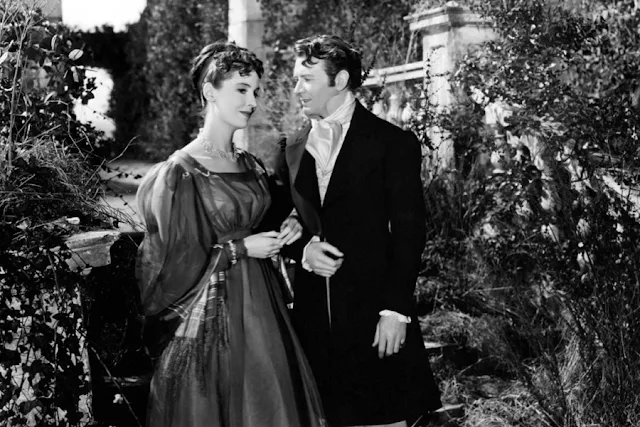 |
| Jean Simmons and Dirk Bogarde in So Long at the Fair |
Cast: Jean Simmons, Dirk Bogarde, David Tomlinson, Honor Blackman, Felix Aylmer, Cathleen Nesbitt, Betty Warren, Marcel Poncin, Austin Trevor, André Morell, Zena Marshall, Eugene Deckers. Screenplay: Hugh Mills, Anthony Thorne, based on a novel by Thorne. Cinematography: Reginald H. Wyer. Art direction: Cedric Dawe, George Provis. Film editing: Gordon Hales. Music: Benjamin Frankel.
They might have called it The Gentleman Vanishes. Jean Simmons and David Tomlinson play Vicky and Johnny Barton, sister and brother, whose travels around Europe take them to Paris for the 1889 Paris Exposition, the event that saw the opening of the Eiffel Tower. After seeing a bit of the city on their first night there, Vicky retires to her hotel room while Johnny, feeling tired, stays downstairs to have a nightcap. In the morning, Johnny has vanished. Not only that, the room where he was staying has vanished too. The hotel staff denies that he was ever there, and moreover asserts that the room where he was staying, No. 19, has never existed: The only room 19 is a bathroom. The manager of the hotel, Mme. Hervé (Cathleen Nesbitt), whom we saw check the Bartons in the night before, insists that only Vicky checked in and shows her the registry that only she signed. And so begins Vicky's harrowing attempt not only to find her brother but also to prove that she's not insane. So Long at the Fair is a mostly engaging variation on the gaslighting theme that evokes the similar, though less complex, disappearance of Miss Froy in Alfred Hitchcock's 1938 The Lady Vanishes, though it's not in the same league as Hitchcock's classic. This version is a little too complicated for its own good: It's hard to ignore the many implausibilities of the scheme that's revealed at the end, and the accidental death of a witness who might have prematurely exposed the scheme feels like a contrivance to keep the plot going. But there's still enough fun in trying to figure things out, and the performances are good. Simmons gives full expression to both Vicky's bewilderment and her determination as she deals with uncomprehending authorities, and Dirk Bogarde is handsomely dashing as the expatriate artist who comes to her aid.











